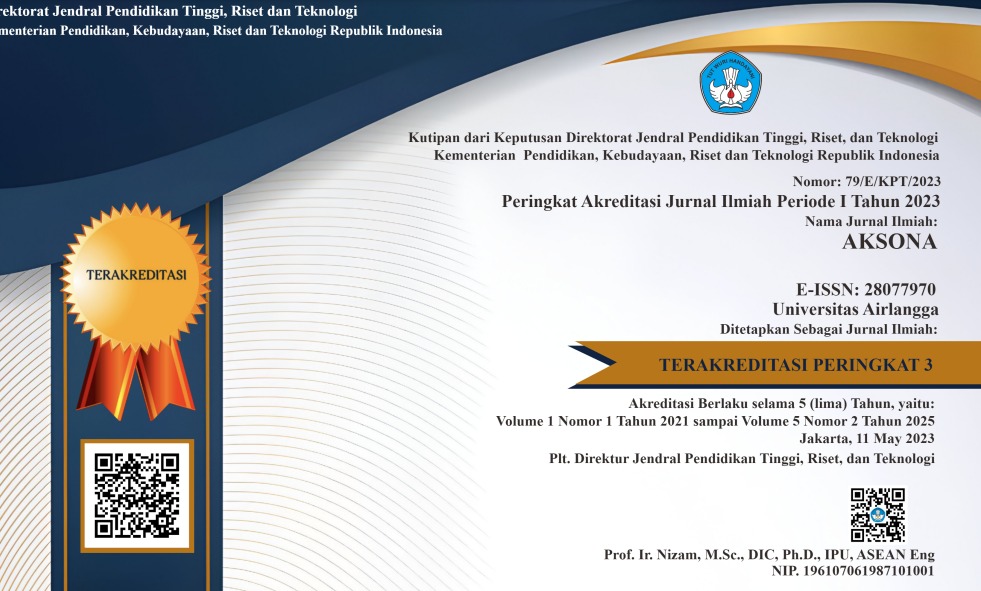
Accreditation Number: 79/E/KPT/2023
Publication Ethics and Malpractice Statement
AKSONA is an open access, peer-reviewed, and scientific journal published by the Faculty of Medicine, Universitas Airlangga, Indonesia. AKSONA journal publishes original research articles, review articles, and case reports focused on neurology and neuroscience: epilepsy, headache, movement disorder, neurobehavior, neurodegenerative, neuroepidemiology, neuroimmunology, neuroinfection, neurooncology, neuroophthalmology, neurophysiology, neurorehabilitation, neurovascular, peripheral nerve, pain, and pain intervention.
Faculty of Medicine, Universitas Airlangga, as publisher of the AKSONA, takes its duties of guardianship over all publishing stages exceptionally seriously, and we recognize our ethical and other responsibilities. The university committed to ensuring that advertising, reprint, or additional commercial revenue has no impact or influence on editorial decisions. In addition, the Faculty of Medicine, Universitas Airlangga and the Editorial Board will assist in communications with other journals and/or publishers where this proves useful and necessary. This statement is adopted under Committe on Publication Ethics (COPE).
Duties of Authors:
Duties of Editor
Duties of Reviewers



Department of Neurology, Faculty of Medicine, Universitas Airlangga; Dr. Soetomo General Academic Hospital, Surabaya, Indonesia
Jl. Mayjen Prof. Dr. Moestopo No.6-8, Surabaya 60286
Telepon: 0315501670
0315501672

 This work is licensed under a Creative Commons Attribution-ShareAlike 4.0 International License.
This work is licensed under a Creative Commons Attribution-ShareAlike 4.0 International License.
